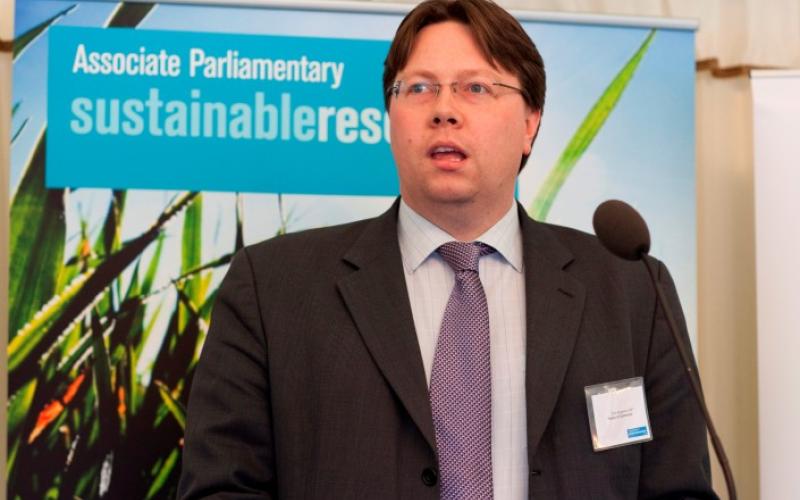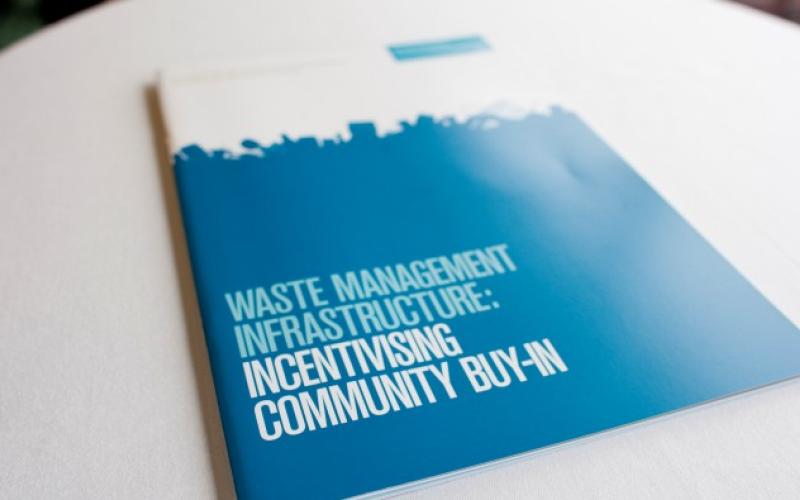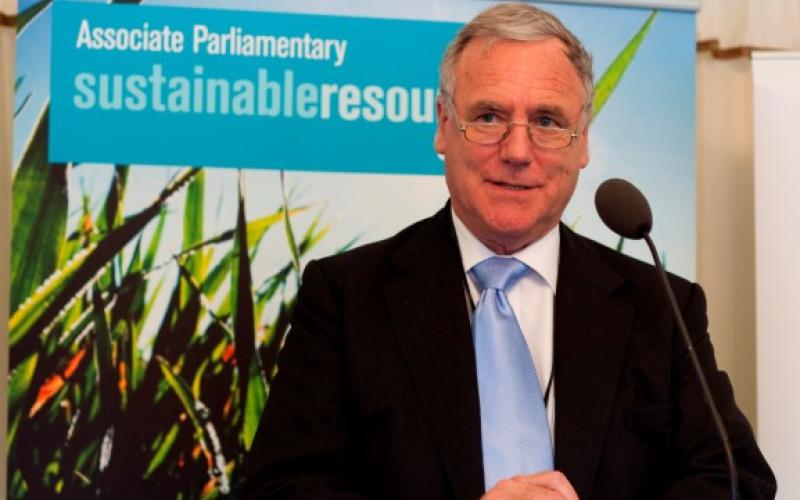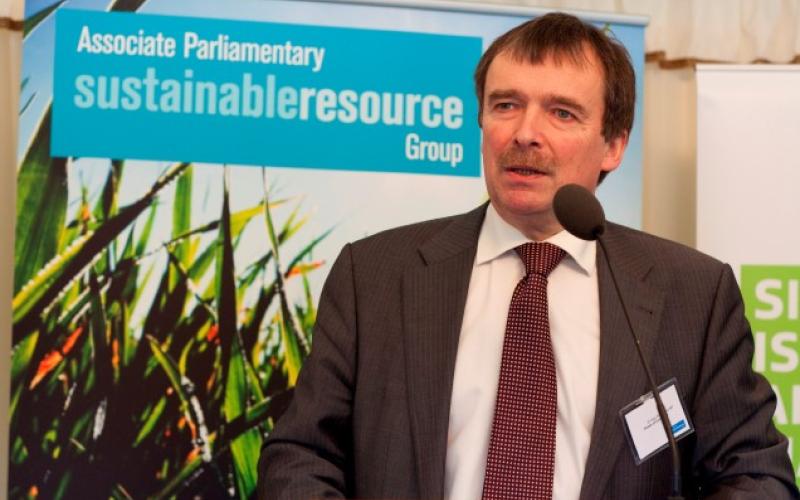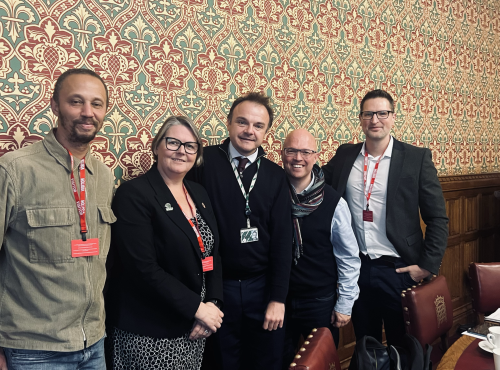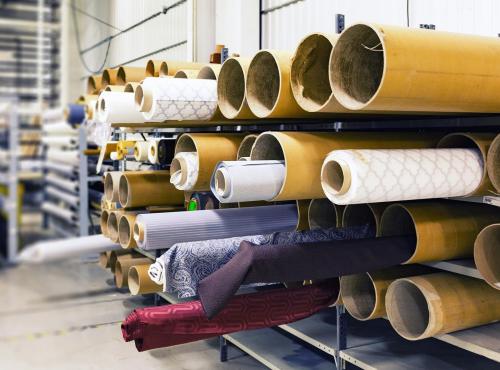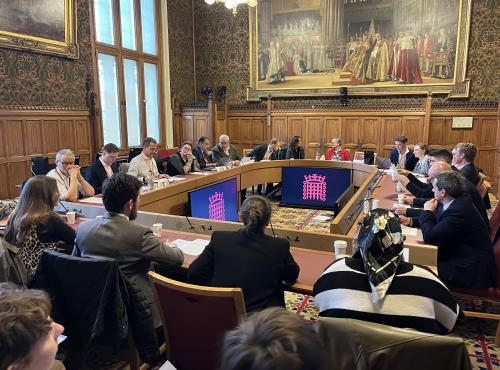Report: Waste Management Infrastructure - Incentivising Community Buy-In
“I support the policies and suggestions that your report puts forward. We are obviously going to look very closely at the recommendations that the report makes.”
Dan Norris MP, Parliamentary Under-Secretary of State for Environment, Food & Rural Affairs.
“We should be offering people and communities incentives to go green, and allow them to benefit from unlocking the value in waste.”
Nick Herbert MP, Shadow Secretary of State for Environment, Food and Rural Affairs
“It is about serious engagement with things that are important to communities. If we adopt this approach, we will be more successful.”
Dan Rogerson MP, Liberal Democrat Shadow Minister for Communities and Local Government
In February 2010, the APSRG launched Waste Management Infrastructure: Incentivising Community Buy-In focused on overcoming the planning barriers at the level of local communities to the development of new infrastructure.
The report highlights distinct and innovative incentive structures that could be utilised at the strategic planning level to give local communities a genuine stake in the development of infrastructure and realise tangible benefits as a product of this process, turning planning into a ‘win-win proposition’.
The report was launched in the House of Commons by Dan Norris MP, then Parliamentary Under-Secretary of State for the Department of Environment, Food and Rural Affairs.
Report overview
Objections from local communities during the planning stage present a persistent problem to the development of new waste management infrastructure. Between October 2009 and February 2010 the APSRG carried out a research project examining how to better secure community buy-in to the development of new infrastructure.
The research comprised an extensive series of interviews with a cross section of relevant stakeholders, including industry representatives, local authority councillors and officials, stakeholder engagement specialists, the third sector, academics and independent experts. These interviews were complemented by in-depth desk-based research exploring the relevant literature from academia, government and industry.
The final report identifies distinct and innovative incentive structures that could be utilised at the community level to overcome planning objections to new waste infrastructure, illustrated with case studies of existing best-practice. Recommendations are made to government as to how such incentive structures could be developed.
The Issue
In the face of crucial European targets regarding the diversion of waste from landfill, the UK will require an exponential increase in the development of new waste management infrastructure over the next decade. The Waste Strategy 2007 estimated that between 300 and 500 new treatment facilities will be needed in England by 2020. Government and industry have been working hard to meet this demand, however, the rate of planning approval for new facilities remains well below what is required. At the heart of this problem lies public opposition to the development of new facilities.
Despite a theoretically sound planning system and distinct progress having been made with regards to stakeholder engagement techniques, a lack of innovation in community engagement has served to stifle the delivery of necessary infrastructure. In contrast to much of Europe, where waste management has become directly associated with delivering social benefits such as reduced energy bills, no widespread systems of community benefit have been established in the UK. Fresh thinking is therefore needed to re-invigorate the UK’s approach to strategic planning and turn facility planning into a win-win proposition for all involved.
The Report
The report addresses the challenge by identifying distinct and innovative incentive structures that could be used at the strategic planning level to give local communities a genuine stake in the development of infrastructure. These are designed to be flexible in application and intended to deliver local benefits tailored to local circumstances. Recommendations are made as to how these incentive structures might be developed, and case studies of ‘best-practice’ are highlighted. Successfully implemented, such schemes could help to facilitate a step-change in public attitudes toward waste that will serve to drive the delivery of necessary infrastructure over the coming decade.
This report was kindly sponsored by SITA UK
If you have any questions regarding this report, please don't hesitate to contact us.
